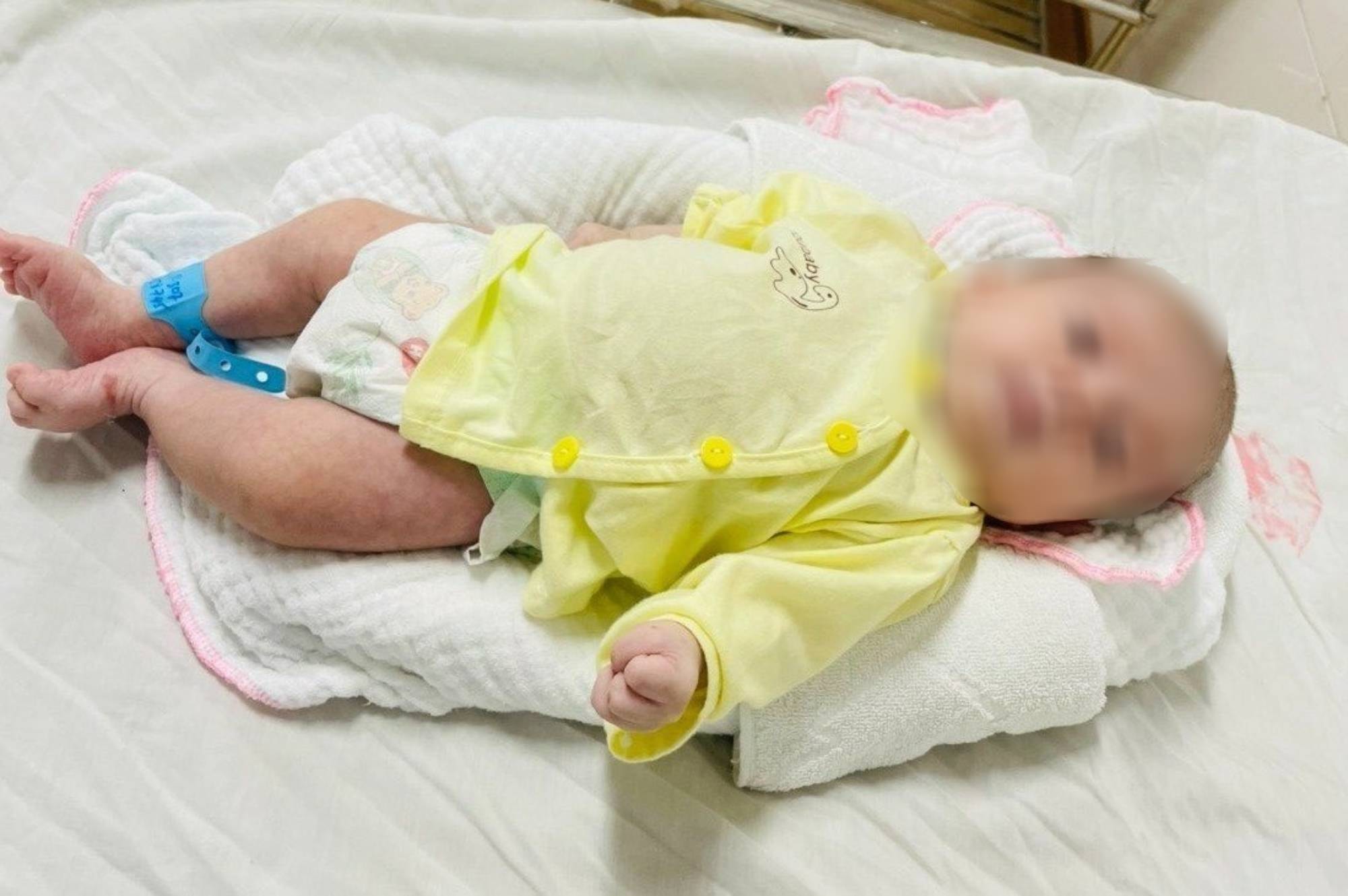Nghe An Obstetrics and Pediatrics Hospital saves newborn baby with dangerous umbilical tetanus
(Baonghean.vn) - The Neonatal Intensive Care Unit, Nghe An Obstetrics and Pediatrics Hospital has just successfully treated and saved the life of a child with severe tetanus... The child was born at home, and the family used scissors to cut the baby's umbilical cord.
The XDP patient is the fourth child of a family in Muong Tip commune, Ky Son district. The patient was born at full term, delivered at home, and relatives assisted the mother. After birth, the family cut the baby's umbilical cord with regular scissors.
6 days after birth, the XDP patient had poor feeding and slept lethargically. At 3 a.m. on July 13, the patient cried continuously, refused to breastfeed, had convulsions, and stiffened. The family took the patient to Ky Son District Medical Center. Ky Son District Medical Center quickly transferred the patient to the emergency room.Nghe An Obstetrics and Pediatrics Hospitalfor treatment.
Through examination and medical history, doctors learned that: The family used scissors to cut the baby's umbilical cord; during pregnancy, the baby's mother did not get a tetanus shot...

The child was diagnosed with umbilical tetanus by the doctor and was isolated and treated separately in the Neonatal Intensive Care Unit in a closed room environment, avoiding light and maximum noise, deep sedation, mechanical ventilation and intravenous nutrition.
Until now, the mortality rate in newborns with umbilical tetanus has been very high. Children with tetanus have been closely monitored, cared for and treated actively with mechanical ventilation, tetanus toxin neutralization with SAT antiserum, antibiotics, and control of convulsions and muscle stiffness with combined sedatives.
After 40 days of intensive care, the XDP patient was able to wean himself off the ventilator, breathe and breastfeed on his own, no longer have any infections or seizures. The patient was discharged to go home with his family. Doctors at Nghe An Obstetrics and Pediatrics Hospital also gave detailed instructions to the family on proper care, monitoring and follow-up in the future.

Sharing about the case, specialist doctor 2 Truong Le Thi - Head of the Neonatal Emergency Resuscitation Department said: "Tetus is an especially dangerous acute infection that can cause death if not promptly detected and treated. The mortality rate in newborns with umbilical tetanus is very high due to acute respiratory failure and infection. Umbilical tetanus that occurred in baby XDP may have been due to unsterile umbilical cord cutting tools at home and unclean newborn care environments. Currently, the number of children infected with tetanus has decreased compared to before. However, once a child has contracted the disease, the survival rate is very low due to the severity of the disease."
Tetanus is an infection caused by the bacterium Clostridium tetani, a Gram-positive anaerobic bacterium, spores of which can be found ubiquitously in the environment.
C. Tetani produces an exotoxin that acts on the central nervous system, causing typical muscle spasms and spasms. The bacteria enter the body through skin wounds, scratches caused by stepping on contaminated china or rusty nails. People of all ages can get the disease. Newborns can get tetanus because the bacteria enter the body, usually through the umbilical cord.
The first symptom of tetanus in newborns is refusing to breastfeed or having difficulty breastfeeding, the baby cannot open his mouth. After 24-72 hours, the symptoms become more severe such as constant jaw stiffness, whole body stiffness. The face, neck, back, abdomen, limbs are all stiff, both hands are clenched. Every sound or every touch to the baby causes the whole body to stiffen. In severe cases, there will be continuous convulsions, sometimes stopping breathing, causing death. Observing the navel shows signs of umbilical infection: the navel is wet, oozing yellow fluid, pus, has a foul odor, and is red and inflamed. Mothers need to observe and detect early when the baby just starts to breastfeed poorly or the navel is leaking water to take the baby to the doctor and get timely treatment.
Currently, tetanus vaccination is an effective and safe measure for both mother and child.

